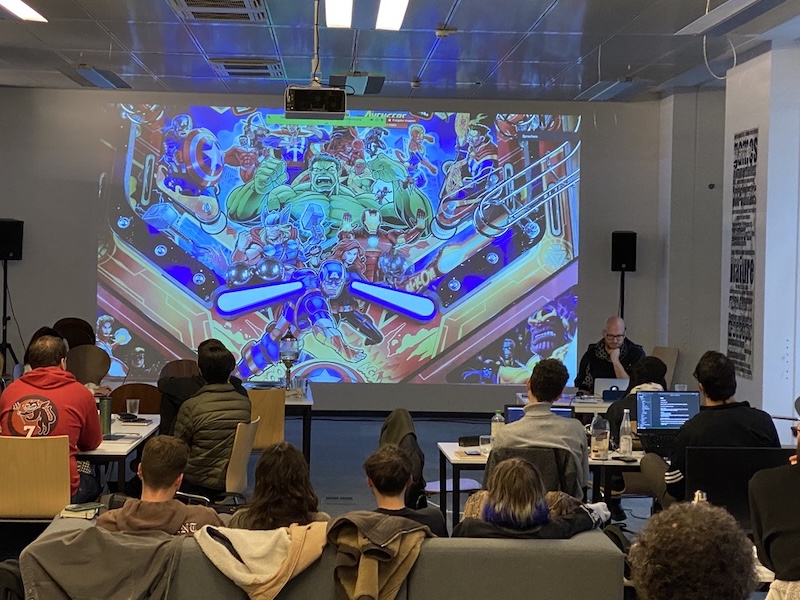LUDIC PINBALL TEA
Robert Glashüttner (game culture journalist FM4) - Pinball Wizard: a game hybrid, a physical performance play machinessery?
@ Studio Experimental Game Cultures with Prof. Margarete Jahrmann - 09/11/22, 15:00
Born and raised in the US amusement arcades of the 1930ies and 1940ies, pinball worked its way up from gambling entertainment to a skill based multiplayer game. Or, as many pinball machines from the 60ies and 70ies later famously stated: "A game of skill for 1 to 4 players!". Those players didn’t go head to head with their opponents though but instead always had the game itself as their main adversary. In order to win, you don’t just press buttons, but get in physical contact with the machine: you shove it, you push it and you nudge it in order to prevent the silverball from draining. Although bereft of its former glory due to the lost fight against videogames in terms of mainstream appeal and attractiveness in the 80ies and 90ies, pinball surprisingly found its way back as a strong game culture niche by the early 2010s. By doing so, the basics haven’t changed much. Although electronically augmented for over four decades now, the main elements of pinball still remain the same: flipper fingers, pop bumpers, slingshots, ramps and targets that can and do break - if you only play long enough.
Robert Glashüttner is a game culture journalist with a focus on independent and retro videogames and pinball. He is a senior editor as well as a presenter and coordinator at ORF Radio FM4 where he founded the videogame culture department in 2016. His communication studies thesis analysed the character of games journalism already in 2006 and has been updated in different texts and papers since then.
In the context of Ludic lecture series - discourses on narrative structures in pinball artifacts, videogame culture, art, game, play, politics and the world in relational times of non-human and human challenges.

